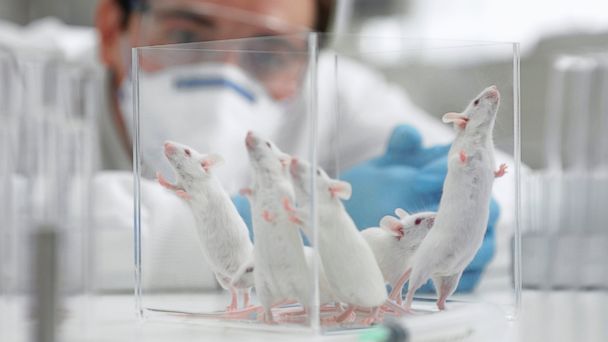Another Anti-Aging Treatment… For Mice
Scientists have made yet another anti-aging discovery. But unless you have whiskers and a tail, it probably won't do you that much good.
The latest studies found that injecting old mice with the blood of younger mice reversed signs of aging like cognitive decline. But don't get your whiskers in a twist over this vampire-esque procedure just yet. Most treatments that work in mice do little for us humans.
"After all, people get transfusions pretty routinely," said Dr. David Katz, director of the Yale University Prevention Research Center, who was not involved in the study. "If older people get transfusions, they're likely getting blood from younger people. I don't know if there's any evidence that they turn out to be smarter."
Katz called it a "leap of faith" to hope that cognitive findings in mice would be replicated in humans, considering that brain function is so different between the two species. Researchers have long been able to stave off signs of aging in mice with ingredients found in everything from red wine to yogurt and even discarded foreskin. But most of those methods have been less than magical in humans.
Katz estimated that the proportion of mouse studies that translate into human treatments was less than one percent.
"A huge number of animal studies cure cancer or the common cold," he said. "Years go by and none of that stuff has actually happened."
Let's not forget the researcher who cured baldness in five mice after sewing bits of discarded foreskin onto their bodies. Scientists in Tokyo, Los Angeles and Baltimore have found other ways to make bald mice sprout fur over the last decade, but none have made their way into humans.
Then, there was the study about probiotics in yogurt that made mice slimmer, shinier and sexier. Researchers at the Massachusetts Institute of Technology noticed the males had more "swagger," and that their testicles were 5 percent bigger. The female mice had larger litters. What's yogurt done for you lately?
But just because 99 percent of mouse studies come up short on the eureka discovery they promised, that doesn't mean people should be discouraged, Katz said.
Remember hearing about resveratrol, the so-called anti-aging compound in red wine that had everyone clamoring for Cabernet and Malbec? The craze started in 2006, when Harvard researchers found that the compound counteracted fatty diets, but it reached fever pitch when studies showed that it staved off death in mice, allowing them to outlive their resveratrol-deprived litter mates by 44 percent.
Although a small group of men experienced metabolic health benefits from resveratrol in a 2011 study, doctors stressed that the compound is unlikely to be a substitute for healthy living. And so far, even though you can buy the stuff in pill form, people aren't living longer.
Still, Katz said it has more promise than the mouse blood study, and may still help humans without necessarily staving off death.
"It very may well be that 99 studies don't produce the breakthrough, but all of them contributed to the one that does," Katz said. "They're all helping move the ball down the field."

Scientists have found yet another anti-aging treatment -- for mice. (Credit: Getty Images)